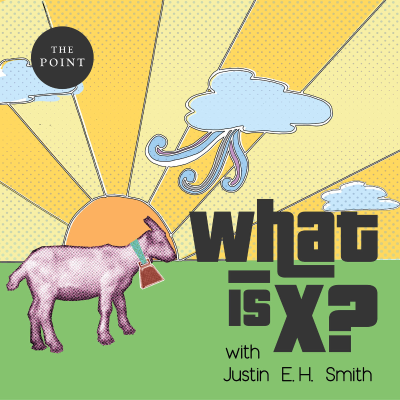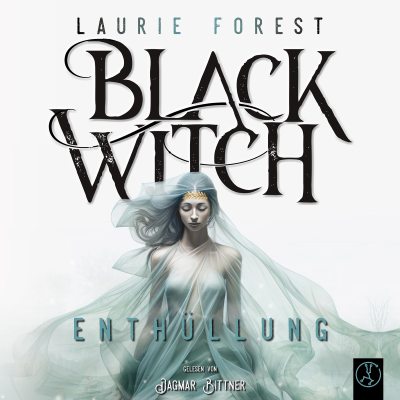
What Is X?
Englisch
Gratis en Podimo
Kostenlos hören bei Podimo
Starte jetzt und verbinde dich mit deinen Lieblingspodcaster*innen
- Vertraut von über 1 Mio. deutschen Hörer*innen
- Über 1.000 lokale Podcasts und Shows – nur bei Podimo
- Keine Zahlung nötig
Mehr What Is X?
“What Is X?” has been described as “a cross between a Platonic dialogue and ‘The Price Is Right.’” It combines dialectical inquiry of the sort perfected by Socrates and his interlocutors with a distinctly ludic spirit. Here’s how it works: For each episode, host Justin E. H. Smith invites on a guest distinguished in their field (or occasionally a “regular” person who really likes to talk). Smith asks the guest to answer a question of the form “What is X?” (for example, “What is beauty?” “What is nature?” “What are dreams?”), after which the two partners in dialogue undertake a Socratic inquiry into the nature of X, in search of a definition that satisfies both of them. There are three possible outcomes: agreement, disagreement, and aporia (Greek for “dead end”), each with its own sound effect: if we arrive at agreement, a church bell will chime; disagreement is signaled by a bleating goat; if aporia is the best we can do, we will hear naught but a gust of wind. Rigorous but freewheeling, fun and serious at once, accessibly highbrow, these conversations model rational inquiry in a new way, providing answers for truth-seekers... or perhaps just more questions. /// Host: Justin E.H. Smith (justinehsmith.substack.com) /// Presented by The Point Magazine (thepointmag.com)
Alle Folgen
25 FolgenWhat Is Being? | Kris McDaniel
This month’s episode of “What Is X?” asks a suitably grand question for the end of the year and for the end of Season 2: What is being? To help him figure it out once and for all (or to at least lessen our state of aporia), Justin brings on as his guest Kris McDaniel, a professor of philosophy at Notre Dame and the author of “The Fragmentation of Being.” Though we might find this question intimidating, Kris notes that this is no longer the case today: though fundamental throughout the history of philosophy, it’s now popular to think the nature of being is too simple to spend much time on. To restore the concept to its proper place, Kris and Justin delve into Heidegger, examined here as part of the Aristotelian tradition. (Heideggerians, take note: this is the episode for you.) What is Dasein, anyway? What distinguishes it from the human? And the hardest metaphysical question of all: Why is the man-on-the-street gut-level notion of what being is still so distant from all this Dasein talk? These questions have ethical implications, too: Kris and Justin discuss what kind of effect ontological status might have on our relationships, and what happens if it turns out our own kids are just random aggregates of particles. Also discussed: whether biology alone can disclose the essence of the siphonophore, why God doesn’t care about wheelbarrows, and the risks of spending too much time with Leibniz.
What Is Money? | Joseph Tinguely
This month on “What Is X?”—timed perfectly after the latest crypto crash—Justin asks, What is money? To begin the conversation, his guest—Joseph Tinguely, a philosophy professor at the University of South Dakota and the editor of the forthcoming Palgrave Handbook of Philosophy and Money—announces he isn’t sure himself. Together, Justin and Joseph attempt to figure it out—or to at least explain why it’s so difficult to grasp what money is. First, there’s the foundational problem of trying to understand money by looking at its historical origins: material objects might survive, but ephemeral beliefs and social formations do not. And then there are the foundational splits: is money an object or a social relation? Has money historically moved in the direction of increased abstraction, from cash to credit, or is it originally abstract—a particular kind of credit? Justin provides valuable firsthand experience from 1990 Leningrad, when the ruble collapsed and Marlboro Reds briefly held sway as the premier unit of exchange, but perhaps such questions are better left to the economic historians. Our philosophers also undertake some intractable philosophical inquiry: money’s association with sin and corruption, the relationship between theology and debt, what money has to do with friendship and gift-giving, and, of course, why it’s difficult to treat cryptocurrency as actual money.
What Is Breakfast? | Seb Emina
On this episode of “What Is X,” Justin brings back a seasoned veteran for one last job: he invites on his friend Seb Emina, former editor of the London Review of Breakfasts blog [https://londonreviewofbreakfasts.blogspot.com/] and author of The Breakfast Bible [https://www.bloomsbury.com/us/breakfast-bible-9781408839904/], to ask: What is breakfast? Now the editor-in-chief of The Happy Reader [https://www.thehappyreader.com/], Seb is no longer in the breakfast game—but when this podcast comes calling, one must answer. Together, Justin and Seb plumb their past and present as breakfasters, as post-Kelloggian subjects, as staunch opponents to the tyranny of brunch. Breakfast, that humble first meal of the day, is not just a meal, Seb asserts, but a mindset. Why is that? And what makes it such a universal, unifying experience compared to lunch and dinner? Listen in and you’ll also learn why cereal deserves a There Will Be Blood-style epic about its early days in Battle Creek, Michigan, what the Full English reveals about Brexit and the geopolitics of Western Europe, and the dishonor the BBC regularly casts upon breakfast. Plus: a peek into the secret language of Justin’s childhood.
What Are Numbers? | Michael Harris
What does it mean for a number to exist? In the philosophy of mathematics, there are two general camps when it comes to numbers: there are the Platonists—or the “realists”—who think numbers somehow really exist, and there are the constructivists, who think they’re the products of mathematical activity. In this episode of “What Is X?” Justin invites on the Columbia University mathematician Michael Harris to try to figure out what the ontological status of numbers is. Are they the ultimate abstractions, or is there something "more real" to numbers than even our physical world? If we ran into them in outer space, would aliens understand numbers as we've conceived of them here on earth? Over the course of the hour, you'll get to listen in on: a discussion of the relationship between numbers and culture, a true story that sounds like a joke about three mathematicians who walk into a bar, and a back-and-forth about why certain philosophers are obsessed with mathematics (hint: its unmediated access to truth).
What Is Punk? | Joseph M. Keegin
The dog days of late summer call for a break from discussions of concepts like Time, War, and Virtue and a turn to a subject that, though significant, probably lacks its own Platonic form: Punk. Joining Justin for this episode of “What Is X?” is our own Joey Keegin—a contributing editor at The Point and a veteran of punk scenes of the 1990s and 2000s. Once a hitchhiker and freight train hopper and DIY participant, Joey is estranged from punk now yet still inspired by it. Why? To ask what punk is, Joey points out, is to ask more than simply what punk music is—because it’s “a promise,” he says, “of a way of living, a promise of a way of being together with other people.” But when it’s just as punk to be straight-edge as it is to be addicted to heroin, how do you sort the good from the bad? Can there even still be punk after the death of rock? Together, Justin and Joey attempt to sort out these distinctions. Along the way, they discuss whether it’s possible for a punk to age gracefully, what punk understands about modernity that hippies didn’t, and why Socrates was not a punk—but was maybe a hardcore kid.















































